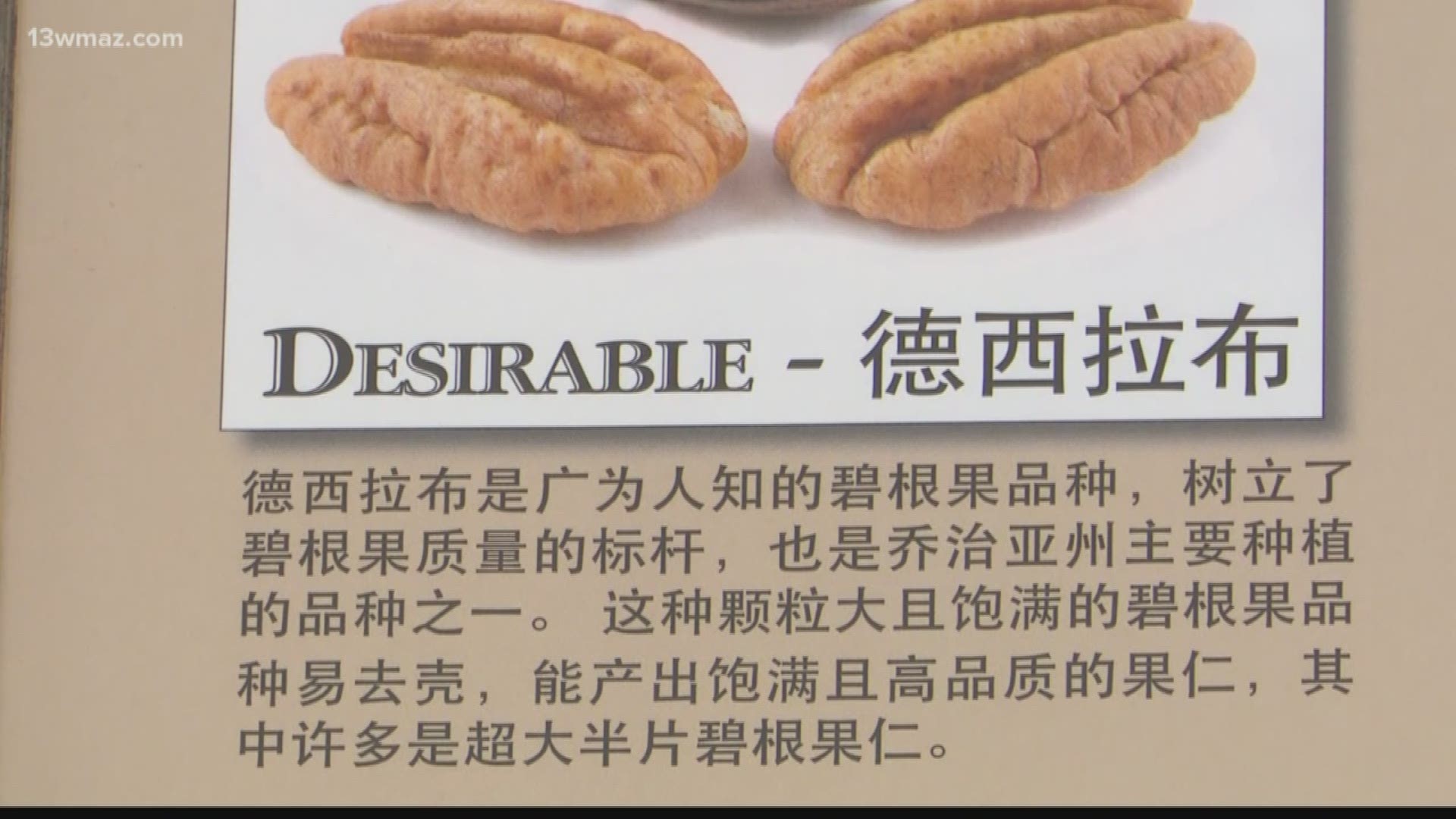It's a story months in the making that's left some Georgia farmers wondering what might come next.
"We're just keeping in touch with all the industry leaders and our contacts and buyers and friends in china and just trying to gather all the information you can," said Phil Croft several months ago.
Croft is the chief operating officer at Hudson Pecan Company in Ocilla. He says his company sells the majority of its pecans to Chinese buyers.
It's not just exporters who are paying attention to the often-shifting trade landscape in the nation's capital, though. Kerry Dunaway, an organic farmer who exclusively sells his products in the domestic market, says he's been keeping an eye on the developing trade tensions between the United States and China -- and the tariffs that both sides have used as leverage in their negotiations.
"Those eventually affect us just like weather just like labor, just like taxes," he said.
The latest from Washington D.C. is that more change could be coming to farmers across the country.
U.S. Secretary of Agriculture and former Georgia governor Sonny Perdue announced the administration would be spending up to $12 billion to subsidize farmers impacted by tariffs.
However, Andy Lucas, director of public affairs for the Georgia Farm Bureau, estimates most of that money will be headed to the Midwest, where he says soybean farmers have been been hit the hardest by tariffs.
"Some of the reports [are] that they probably lost as much as $2 a bushel," said Lucas.
Georgia farmers have felt the burden as well and Lucas says some of the money will likely go to them as this program is rolled out over the next year. However, he says it's difficult to estimate how much.
"It's too early in the process. Secretary Perdue is working with the administration to determine what this program looks like, it won't be until after Labor Day that we see the first markup," he said.
Lucas says the program likely will offer some assistance to Georgia's farmers but he says it's not the way they prefer to make their living.
"Farmers at the end of the day would rather get their money through the open markets, through free trade, than to receive any kind of subsidies or anything like that," he said.
Lucas adds that recent tariffs aren't the only challenge facing Georgia's farmers. He says that farm income has fallen around 25 percent over the last five years.
According to him, the ongoing trade war with China is exacerbating the problem.

